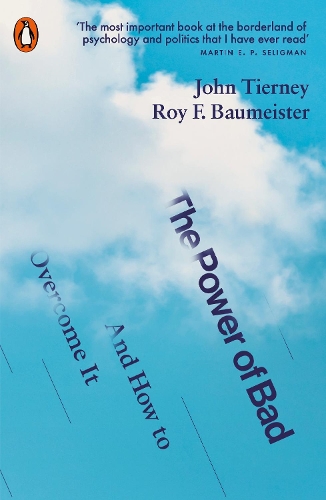
The Power of Bad: And How to Overcome It
(Paperback)
Publishing Details
The Power of Bad: And How to Overcome It
By (Author) John Tierney
By (author) Roy F. Baumeister
Penguin Books Ltd
Penguin Books Ltd
13th April 2021
28th January 2021
United Kingdom
Classifications
General
Non Fiction
Advice on careers and achieving success
Management and management techniques
Popular science
Social and ethical issues
Psychology: emotions
150.1988
Physical Properties
Paperback
336
Width 130mm, Height 198mm, Spine 20mm
247g
Description
The international bestselling authors of Willpower show us how to beat the disproportionate influence of negative events on our lives Why does a bad impression last longer than a good one Why does losing money affect us more than gaining it What makes phobias so hard to shake The answer is the negativity bias - or in other words, the power of bad. As John Tierney and Roy F. Baumeister show, we are wired to react to bad over good. It makes sense in evolutionary terms, but in our modern world the lure of bad is, well, bad. It governs people's moods, drives marketing and dominates our news. It can explain everything from why wars start or couples divorce, to why we mess up job interviews or feud with neighbours. But there is good news. By using smart strategies from new science, we can train our brains to get better at spotting our own negativity bias and even using its power for positive results. Properly understood, bad can end up being a force for good.
Reviews
Illuminating * Times *
Tierney and Baumeister argue their case forcefully and well, and supply vast quantities of evidence in its favour * Daily Mail *
Author Bio
John Tierney (Author) John Tierney is the author of Willpower and writes the 'Findings' science column for the New York Times. His writing has won awards from the American Association for the Advancement of Science and the American Institute of Physics. Roy F. Baumeister (Author) Roy F. Baumeister is the author of Willpower and a social psychologist who explores how we think about the self, and why we feel and act the way we do. He is especially known for his work on the subjects of willpower, self-control, and self-esteem, and how they relate to human morality and success.
